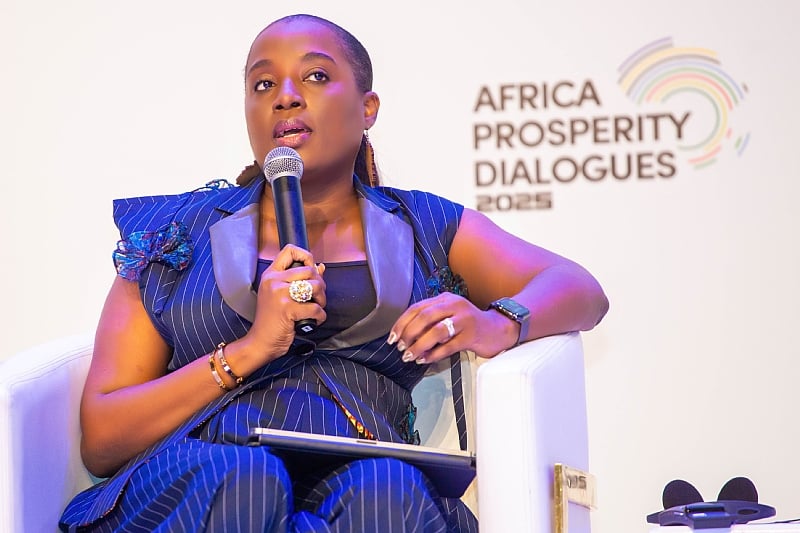Antoinette Kwofie, the Chief Finance Officer of MTN Ghana, delivered a compelling argument for pan-African collaboration and regulatory harmonization at the 2025 Africa Prosperity Dialogues. Her central message focused on the urgent need for a unified approach to attract investment in infrastructure, emphasizing a shift from fragmented national strategies to a cohesive continental vision. Kwofie argued that viewing Africa as a single economic unit, rather than 54 disparate nations, is crucial for unlocking the continent’s vast potential and driving sustainable growth. This unified front, she suggested, would enable African nations to pool resources, expertise, and funding, thereby facilitating larger-scale infrastructure projects that transcend national boundaries. Her call for “thinking as one unit” and “playing as a team” highlights the belief that collaborative strength is the key to overcoming the significant infrastructure deficit that currently hampers Africa’s development.
Kwofie’s emphasis on regulatory harmonization underscored the importance of streamlining regulations across African countries to create a more conducive investment environment. The current fragmented regulatory landscape, characterized by varying standards and procedures across different countries, acts as a significant deterrent to both domestic and foreign investment. Harmonizing these regulations, she argued, would create a level playing field, reduce transaction costs, and simplify cross-border operations. This simplification, in turn, would make it easier for investors to navigate the African market and contribute to infrastructure development. This call for regulatory alignment is directly tied to the effective implementation of the African Continental Free Trade Area (AfCFTA), which Kwofie sees as a crucial instrument for fostering intra-African investment and trade.
The AfCFTA, in Kwofie’s view, holds immense potential for fostering economic integration and boosting infrastructure development within the continent. By removing trade barriers and creating a single continental market, the AfCFTA facilitates the free flow of goods, services, and capital, thus creating opportunities for large-scale investments in infrastructure projects that serve a wider African market. Kwofie’s call to “operationalize AfCFTA” emphasizes the need to move beyond mere ratification of the agreement towards its practical implementation. This includes addressing non-tariff barriers, streamlining customs procedures, and harmonizing regulatory frameworks across member states. Only through its full and effective implementation, she argued, can the AfCFTA realize its transformative potential for infrastructure development and economic growth across Africa.
Furthermore, Kwofie highlighted the crucial role of human capital development in propelling Africa’s transformation. She stressed the need for targeted investments in both technical and technological skills to equip the African workforce for the demands of the modern economy. This investment in human capital, according to Kwofie, is not simply about acquiring technical proficiency, but about fostering innovation and building local capacity to develop technological solutions relevant to Africa’s specific needs. Her argument recognizes that infrastructure development is not just about physical structures, but about building a skilled workforce capable of designing, constructing, and maintaining those structures. It also emphasizes the importance of fostering an environment where local talent can thrive, reducing reliance on external expertise.
Kwofie lamented the prevailing tendency to import technology from Western nations despite the abundance of talent within Africa itself. She argued that Africa has the potential to develop its own technological solutions, tailored to the specific needs and challenges of the continent. She cited MTN’s internal team of African software developers as a prime example of the continent’s inherent capacity for innovation. This example serves to illustrate her point that Africa possesses the talent and expertise to drive its own technological advancement, thereby reducing reliance on imported solutions. Investing in and nurturing this local talent, she suggested, is not only economically prudent but also fosters self-reliance and strengthens Africa’s technological sovereignty.
In conclusion, Kwofie’s message at the Africa Prosperity Dialogues emphasized the interconnectedness of several key elements for driving infrastructure development and economic growth in Africa. She called for a paradigm shift in thinking, urging African nations to abandon fragmented approaches and embrace a unified continental vision. This, she argued, requires regulatory harmonization, the effective operationalization of the AfCFTA, and strategic investment in human capital, particularly in technological skills. By fostering a collaborative environment, harmonizing regulations, and investing in local talent, Africa can unlock its vast potential for growth, reduce reliance on external solutions, and chart a path towards sustainable and inclusive development. Kwofie’s call to action resonates with a growing consensus that pan-African collaboration and strategic investment are essential for transforming Africa’s infrastructure landscape and securing its prosperous future.














